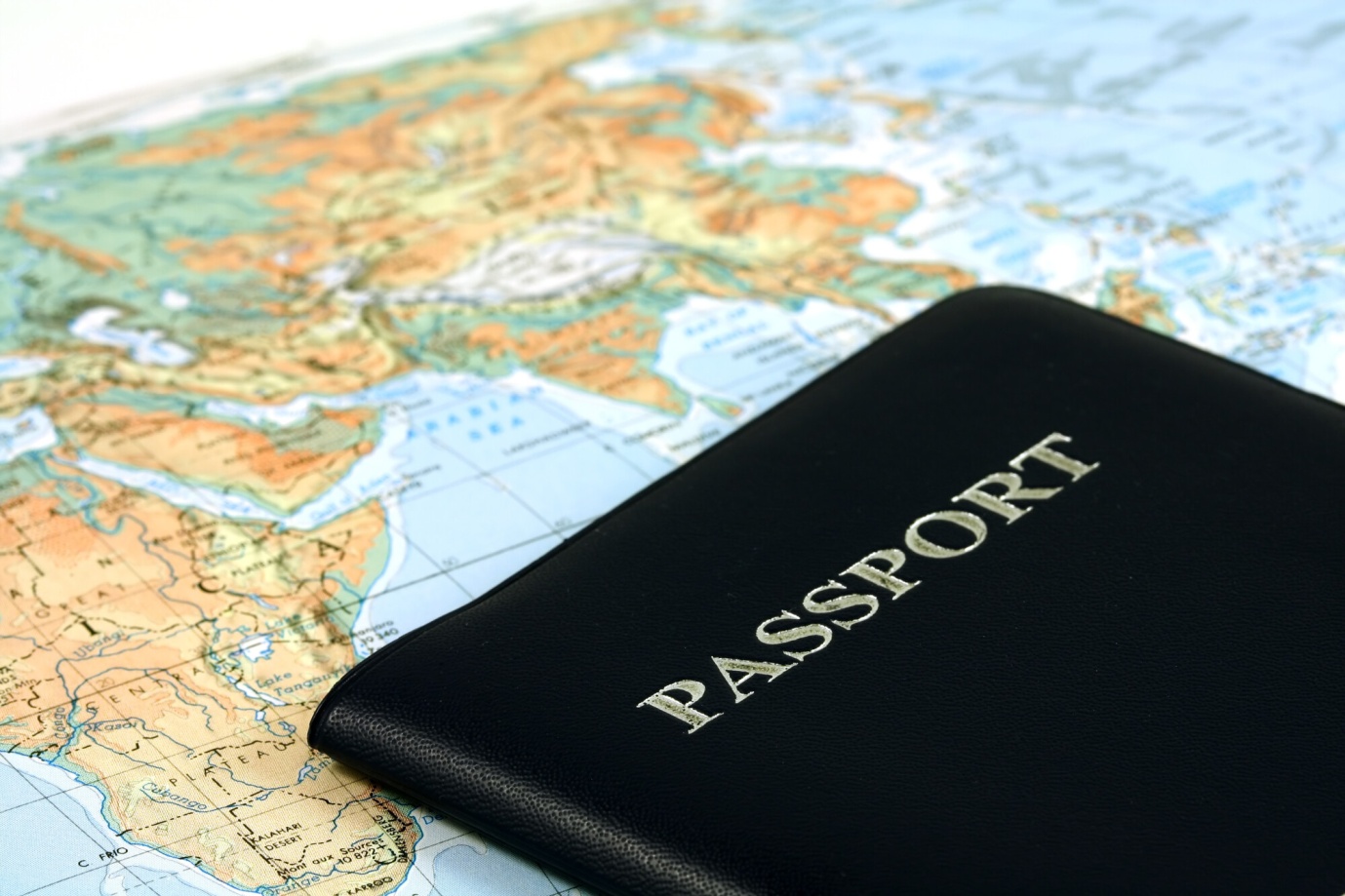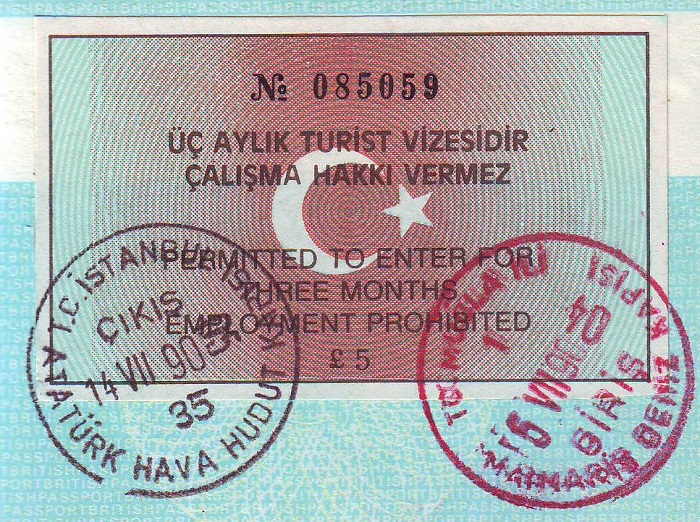Education
11 Tips for Working Overseas

You are about to start an incredible adventure.
Working overseas is becoming a more realistic and attractive dream for many in the US.
Around nine million Americans are living abroad, which is only 2.8% of the population. But there are likely millions more working remotely at home or away. Not only is working abroad possible, but it will also allow you to travel more, meet amazing people, and experience a different way of life.
But it is a big life-altering experience. There are a lot of practical, financial, cultural, and legal considerations.
This guide will help you navigate everything you need to know about working overseas. Whether that is as an international employee fixed in one location or as a remote worker.
Find an Employer That Will Help You Work Internationally
You may already have a job offer with an international business to work overseas. In which case, congratulations! But if you are still figuring that part out, read on.
There are four main options for working overseas. These are:
- Multinational companies with offices overseas you can transfer to from the USA
- Overseas companies who hire multinational staff
- Remote companies based in the USA or abroad
- Self-employment as a digital nomad/remote worker
The options available to you depend on your skillset and ideal lifestyle.
If you already work for a large company with overseas offices, you could apply for a transfer. Or, if you have a country you would like to move to in mind, check their current visa requirements to see if you can land a job.
Some countries publish lists of jobs they need overseas workers to fill. For example, Australia has a skills shortage of nurses and carpenters.
If you want more location flexibility, consider becoming a self-employed digital nomad or working for a remote company.
Organize Your Visas and Paperwork
As soon as you know you want to become an international employee, start organizing your paperwork and visas.
First, make sure your passport is up-to-date. Or apply for a passport if you do not have one. You will also need to consider your spouse and children, too, if applicable.
If you are transferring within a multinational company or joining a company overseas, ask them to help. Applying for visas can be a long and complicated process so take all the help you can. You may need to seek legal and professional advice depending on your circumstances.
Remote workers who plan on traveling a lot may not need work visas. There are lots of countries that offer digital nomad visas which often allow remote workers to stay for up to a year.
These countries include:
- Iceland
- Croatia
- Costa Rica
- Dubai
- Estonia
- … And many more!
Check the individual requirements. If you do not choose digital nomad visas, make sure you never overstay whichever visa you use.
Appreciate Other Working Cultures
When working overseas, you will have to adapt to the working culture as well as the local culture!
In the US, many companies expect two weeks’ notice when leaving a job and pay every two weeks. But in the UK, for example, employers expect one month’s notice and pay every month too.
Paid time off and working hours differ from country to country and the office culture may be different, too. Read up on the work culture and ask your colleagues on the ground about expectations so you are not caught off guard.
Prepare Your Taxes and Banking
Taxes are one of the biggest headaches for American immigrants. You may live abroad, but even if you are eligible to avoid US taxes you often still need to update the IRS.
Do your research on taxes and start sooner rather than later so you can stay on top of your finances. If you can afford to, consult a professional advisor so you know exactly what you need to do.
You will likely need to open a bank account in your new home country, too. Talk to your colleagues about the best local banks.
If you are a self-employed remote worker, you may receive payments in many currencies. Consider services like TransferWire to avoid hefty exchange fees. A multi-currency debit card like Revolut might be handy, too.
Learn the Local Language
If you are an English speaker, you are very privileged in that many people around the world speak English as a second language. But if you are staying somewhere for a significant period of time, learning the language will offer you more cultural experiences.
Plus, it is respectful.
Download an app like DuoLingo or try a program like Rosetta Stone. Look into language classes in your new country. Denmark, for example, offers free Danish lessons to recent immigrants and refugees.
Reduce Your Possessions
Culling your clutter and cutting down on belongings will make the transition to working abroad far easier. Even if you plan on moving back in a couple of years, try to avoid keeping much in storage. It is an added expense and your plans may change.
Sell or give away your furniture and homeware by having a yard sale or posting on sites like Craigslist and eBay. Give yourself a deadline to sell things and if they have not sold by the deadline, donate the items to charity.
Clear out your closet and start afresh. Think about what the climate will be like in your new home country. If you live in Canada and you are moving to Mexico, you likely do not need that down winter coat.
If you will be an international employee, anything you need will likely be available in your new home country.
And if you are doing remote work, you do not want to carry around tons of stuff in large suitcases. In fact, try to pack carry-on only.
Invest in Remote Work Tech
Even if you are not doing remote work, moving overseas is a great time to reaccess your working setup. And if you are becoming a remote worker, you need to have great gadgets for your work needs.
Consider investing in the following devices:
- Lightweight and powerful laptop
- Hard drives for backup
- Bluetooth earphones or headphones
- Unlocked cell phone
- Portable battery charger
You may need to cancel or change your cell phone contract if it does not offer overseas benefits. And you may need a local SIM card, too.
Figure Out Your Accommodation
International businesses that often hire staff from overseas sometimes offer temporary housing. So, it is always worth asking your company if they can help you and your family with the transition.
You can search for accommodation by typing your new home city with “real estate” or “apartments for rent” on Google or Facebook. You can often find helpful Facebook groups so you can ask questions and start making a list of potential places.
Remote workers may want to stay in a range of accommodations depending on their travel style. Vacation rental managers on websites like Airbnb sometimes offer discounts if you are staying for over a month.
Read Also: IS PURSUING AN MBA AFTER ACCA HELPFUL TO YOUR CAREER?
It doesn’t hurt to ask!
Modern hostels and co-living spaces are perfect for budget remote workers. They offer cheap accommodation with kitchens and working spaces. There are more and more co-living spaces popping up all the time.
Check out local co-working spaces, too, if you want a designated work area when you travel.
Make Friends With the Expat Community
Before you go, post on social media to ask your friends if they have a cousin or a friend-of-a-friend they can introduce you to abroad. It will be far less isolating if you have potential friends you can meet up with before you go.
There are also lots of Facebook groups for immigrants and expats abroad. Try typing your new city along with “expats” or “expats and locals” into the search bar.
If you are a remote worker, you could join a virtual remote work community like Location Indie.
But Dive into the Local Community Too
Don’t stay in an expat bubble, try to experience the local culture as well.
Take cooking classes to learn the local cuisine. Join sports teams and check out fun courses to meet local people – and say hi to your neighbors!
Reading books, newspapers, and watching movies set in that culture will help too. You may know very little about your new home country’s current affairs.
Work Out How You Will Get Around
Last but not least, think about how you plan on getting around in your new home. If you love driving, you might need an international driving permit to hire or buy cars abroad.
But in some places, having a car is impractical. Do your research and learn what public transport passes are available and how the locals get around.
In Denmark and the Netherlands, cycling is the most common mode of commuting – and driving in London, England would drive you (and your bank balance) crazy.
Everything You Need To Know About Working Overseas
Preparing everything you need to start working overseas might seem overwhelming, but the benefits are worth it. Once you have your financial and legal matters organized, it is only a case of staying on top of things.
Plus, you will be having too much fun living in your new home country to worry for long.
Like this article? Browse our website for more business and travel advice!




![[pii_email_4c910535350b5a41ee81] Error Code Resolved](https://wigily.com/wp-content/uploads/2020/09/pii_email_4c910535350b5a41ee81-Error-Code-Resolved.jpg)
